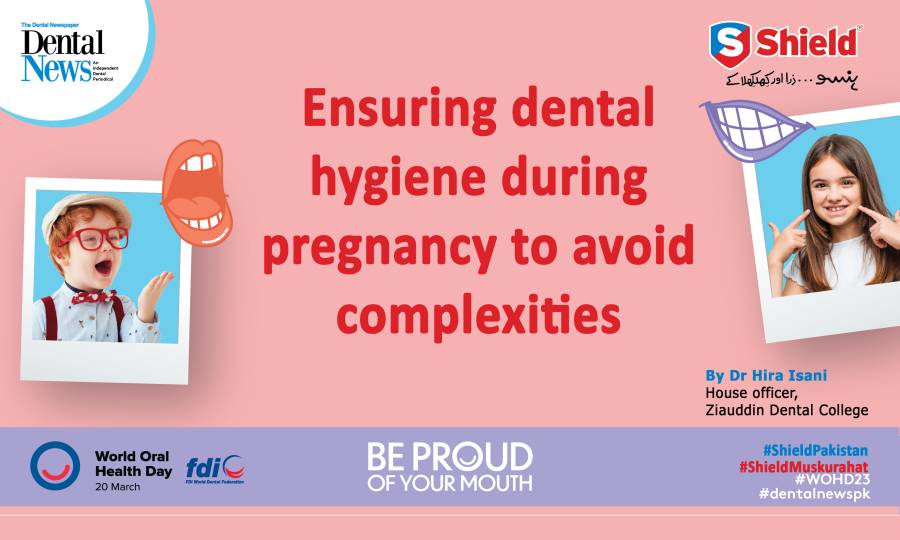
Though it seems far-fetched, the hormonal changes occurring in the body during pregnancy do affect women’s oral health that should be taken care of in consultation with the dentist to avoid complexities during this very crucial period.
Medical research shows that a sudden surge in hormones during pregnancy gives rise to various dental problems. Pregnancy hormones affect how gums react to plaque, causing the gums to swell, bleed, and trap food particles resulting in increased irritation to the gums.
Gingivitis or inflammation of the gums, a mild early form of disease, affects up to 80 percent of pregnant women. Research finds that women with gum disease are seven to eight times more likely to give birth prematurely to low-birth-weight babies. It’s the most commonly occurring issue during pregnancy.
Experts say that pregnancy problems, such as morning sickness, gastric reflux, inflamed gums and cravings, especially for sugary foods and drinks, can cause dental erosion and caries. To reduce the risk of dental decay, pregnant women should take good care of oral hygiene and rinse the mouth with water after every episode of vomit. It will help prevent the acid in the vomit from damaging their teeth.
Expecting women are advised against brushing teeth straight away following vomit. They should wait for an hour at least as teeth can get softened by the acid present in the stomach and brushing immediately could harm them.
During the sixth week, the fetus starts to develop teeth, and a diet rich in calcium is suggested for the mother and the baby. Not just during pregnancy, but during breastfeeding as well, calcium intake can be beneficial for both the mother and the baby, as it helps with bone and tooth formation.
Some pregnant women may develop pregnancy epulis, which is a benign growth that is generally not painful, but bleeds very easily. Typically, this will occur in the second or third trimester, sometimes even appearing for the first time in the final month of gestation. Although it’s not something of extreme concern, some patients usually get rid of it for cosmetic reasons, or because the diagnosis is uncertain. However, if left alone, the epulis will usually become smaller or disappear after childbirth.
X-ray radiations can be teratogenic due to which many dental procedures are avoided until the baby is born. To avoid any dental problems, it’s best to maintain good oral hygiene, which can be simply maintained by cleaning your teeth carefully twice a day for two minutes with fluoride toothpaste that can help prevent many dental problems.
Here is some expert advice for pregnant women; floss once a day to remove any food particle present between your teeth, which will help prevent plaque buildup. Avoid having sugary drinks (such as fizzy drinks or sweet tea) and sugary foods too often. If you are hungry between meals, snack on foods such as vegetables, fresh fruit, or plain yogurt, and avoid sugary or acidic foods. Avoid mouthwash that contains alcohol. Stop smoking, as it can make gum disease worse.


